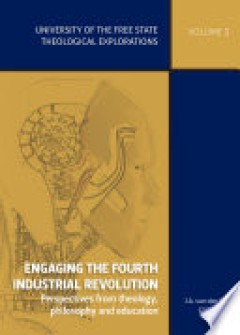Filter by

Harnessing public research for innovation in the 21st century: an internation…
Universities and public research institutes play a key role in the innovation ecosystem. Many countries have implemented national strategies to support the commercialization of knowledge produced by public institutions, to help take their innovations and scientific breakthroughs to market and ultimately boost economic growth. Research bodies themselves have also introduced practices to support …
- Edition
- -
- ISBN/ISSN
- 9781108842792
- Collation
- 544 p
- Series Title
- Intellectual property, innovation and economic development
- Call Number
- 607.2 ARU h

Transforming food systems under climate change through innovation
Our food systems have performed well in the past, but they are failing us in the face of climate change and other challenges. This book tells the story of why food system transformation is needed, how it can be achieved, and how research can be a catalyst for change. Written by a global interdisciplinary team of researchers, it brings together perspectives from multiple areas including climate,…
- Edition
- -
- ISBN/ISSN
- 9781009227216
- Collation
- 254 p
- Series Title
- -
- Call Number
- 338.1 CAM t

Rating the audience : the business of media
This book is available as open access through the Bloomsbury Open Access programme and is available on www.bloomsburycollections.com. Knowing, measuring and understanding media audiences have become a multi-billion dollar business. But the convention that underpins that business, audience ratings, is in crisis. Rating the Audience is the first book to show why and how audience ratings research …
- Edition
- -
- ISBN/ISSN
- 9781849663410
- Collation
- xvi + 272 p
- Series Title
- -
- Call Number
- 302.23 MAR r

The Palgrave Handbook of International Energy Economics
This open access handbook is distinguished by its emphasis on international energy, rather than domestic energy policies or international geopolitic aspects. Addressing key topics such as energy production and distribution, renewables and corporate energy structures, alongside global energy trends, regional case studies and emerging areas such as the digitalization of energy and energy transiti…
- Edition
- -
- ISBN/ISSN
- 9783030868840
- Collation
- LXVI, 770p. ill.
- Series Title
- -
- Call Number
- 333.79 MAN t

Citizen activities in energy transition : user innovation, new communities, a…
This book addresses the rapidly changing citizen roles in innovation, technology adoption, intermediation, market creation, and legitimacy building for low-carbon solutions. It links research in innovation studies, sustainability transitions, and science and technology studies, and builds a new approach for the study of user contributions to innovation and sociotechnical change. Citizen Activit…
- Edition
- 8
- ISBN/ISSN
- 9780367680251
- Collation
- xii, 190 p
- Series Title
- Routledge Studies in Innovation, Organizations and Technology,
- Call Number
- 333.794 HYY c

The German Chambers of Commerce and Industry : Self-governance, Service, the …
This open access book examines a particular factor in the enduring international success of German companies. Beyond industrial specialization, peaceful labor relations, local financial markets and the “miracle of the Mittelstand”, it focuses on a characteristic aspect of governance within the German economy: The Chambers of commerce and industry. Important characteristics of the Chamber sy…
- Edition
- -
- ISBN/ISSN
- 9783030707996
- Collation
- XIII, 385p. ill.
- Series Title
- Practical Wisdom for Sustainable Organizations
- Call Number
- 381.060943 EBE t

Engaging the Fourth Industrial Revolution : perspectives from theology, philo…
The reality of a radically changing world is beyond dispute. The notion of the Fourth Industrial Revolution is a heuristic key for the world of emerging technologies such as artificial intelligence, nanotechnology, quantum computing, big data, the internet of things, and biotechnology. The discussion of emerging technologies and the Fourth Industrial Revolution highlights urgent questions about…
- Edition
- 5
- ISBN/ISSN
- 9781928424512
- Collation
- xvii, 252 p
- Series Title
- Theological Explorations, Volume 3
- Call Number
- 201.66 VAN e

Gendering the field : towards sustainable livelihoods for mining communities
The chapters in this book offer concrete examples from all over the world to show how community livelihoods in mineral-rich tracts can be more sustainable by fully integrating gender concerns into all aspects of the relationship between mining practices and mine affected communities. By looking at the mining industry and the mine-affected communities through a gender lens, the authors indicate …
- Edition
- -
- ISBN/ISSN
- 9781921862175
- Collation
- xv, 230p.
- Series Title
- Asia-Pacific environment monographs
- Call Number
- 338.2082

The origin and the evolution of firms : information as a driving force
The firms and markets of today's complex socio-economic system developed in a spontaneous process termed evolution, in just the same way as the universe, the solar system, the Earth and all that lives upon it. Darwin's theory of evolution clearly demonstrated that evolution involved increasing organization. As we began to explore the molecular basis of life and its evolution, it became equally …
- Edition
- 18
- ISBN/ISSN
- 9781607509578
- Collation
- viii, 232 p
- Series Title
- -
- Call Number
- 330.1 ROE t

Safety Cultures, Safety Models : Taking Stock and Moving Forward
The objective of this book is to help at-risk organizations to decipher the “safety cloud”, and to position themselves in terms of operational decisions and improvement strategies in safety, considering the path already travelled, their context, objectives and constraints. What link can be established between safety culture and safety models in order to increase safety within companies carr…
- Edition
- -
- ISBN/ISSN
- 9783319951294
- Collation
- viii, 166 p
- Series Title
- SpringerBriefs in Applied Sciences and Technology,
- Call Number
- 363.11 GIL
 Computer Science, Information & General Works
Computer Science, Information & General Works  Philosophy & Psychology
Philosophy & Psychology  Religion
Religion  Social Sciences
Social Sciences  Language
Language  Pure Science
Pure Science  Applied Sciences
Applied Sciences  Art & Recreation
Art & Recreation  Literature
Literature  History & Geography
History & Geography